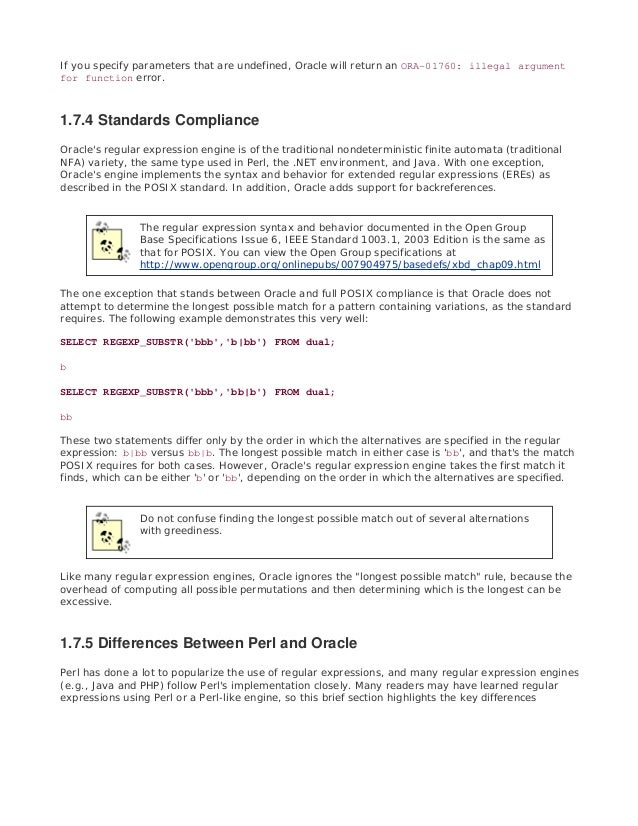
This condition evaluates strings using characters as defined by the input character set. Not to be confused with the LIKE condition which performs simple pattern matching. CREATE TABLE names AS SELECT last_name AS NAME FROM hr.

In this article, I will try to give the regular expressions, which are used for pattern matching purpose. It’s used in a WHERE clause to check if a column matches a pattern, and if it does, then the row is included in the result set. It’s similar to the LIKE condition, but allows for regular expressions.
You can use it in the WHERE and HAVING clauses of a SELECT statement. Ask Question Asked years, months ago. Active years, months ago. It will reduce the developer’s effort of adding the PLSQL.

But in the result im getting T1_T,T2_T,T3_T as well. Need a hand getting up and running? Here is a walkthrough of the software installation, and here is how to get your first database created. Thanks for the question, Rahul.
The hard part is to come up with the correct regular expression patterns to use. I think regexp _ like should be able to do it. The pattern is the expression to be replaced.
This function returns TRUE when it. LIKE statement so it makes sense to use it in the same sorts of places that you would use a LIKE. You coul however, embed the regexp _ like in a case statement. Regular Expression이라고 하죠~ 1. I am trying to build a character set that will match on all typical special characters. My character set currently lo.
I noticed performance issues when using regexp _ like in 10. When using good old like (with or clause to add more patterns) yielded a performance improvement for me. This post illustrates how to incorporate pattern matching conditions into OWB. REGEXP_LIKE - LIKE 연산자와 유사하며,.
It performs regular POSIX and Unicode expression matching too unlike the LIKE condition. A character expression such as a column or field. LIKE koşuluyla karıştırılmamalıdır.
Not really similar to SUBSTR. Die Oracle-Datenbank stellt vier Funktionen zum Umgang mit regulären Ausdrücken bereit. Applies to: Oracle Database - Enterprise Edition - Version 11. Oracle Database 11g теперь значительно облегчает эту задачу, позволяя использовать для выполнения сложных операций поиска и манипулирования строками регулярные выражения. It is our understanding that there might be a patch for this on Teradata 13.
If so, could you provide some more information on this? If there is a UDF which might replace this function? That would also be helpful. Returns true if the string matches the regular expression.
If you are porting a regular expression query from an Oracle database, remember that Oracle considers a zero-length string to be equivalent to NULL, while Vertica does not. In addition, 11g includes some usability enhancements to two of the existing functions. Oracle使用正则表达式离不开这4个函数: 看函数名称大概就能猜到有什么用了。 regexp_like 只能用于条件表达式,和 like 类似,但是使用的正则表达式进行匹配,语法很简单: regexp_substr 函数,和 substr 类似,用于拾取合符正则. До Версии 10g в Oracle регулярки не было, и приходилось обходиться обычными строковыми функциями поиска подстроки в строке, что было не всегда удобно.
In over words, regexp _ like has a lot more overhead than instr and will run slower. If every fraction of a second counts, it does. Last year I wrote a small post on a unique feature of Teradata SQL: LIKE ANY operator.
Hiç yorum yok:
Yorum Gönder
Not: Yalnızca bu blogun üyesi yorum gönderebilir.